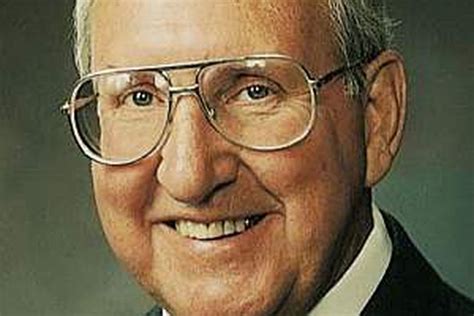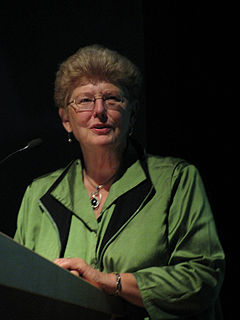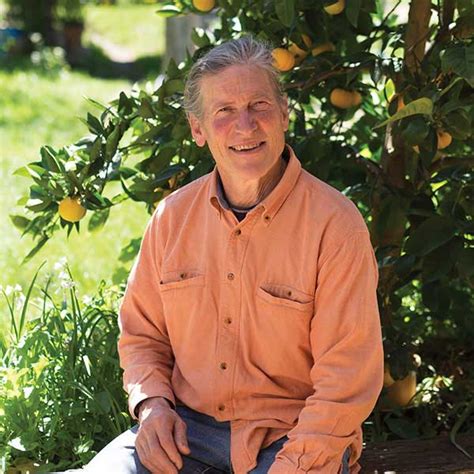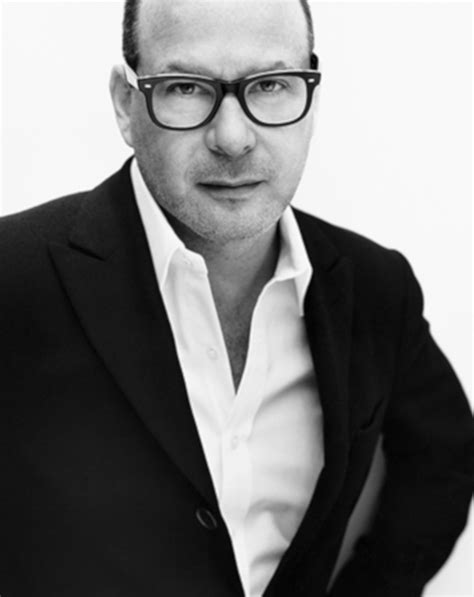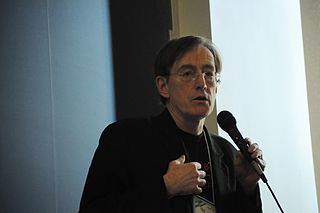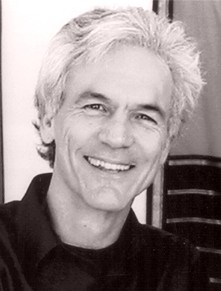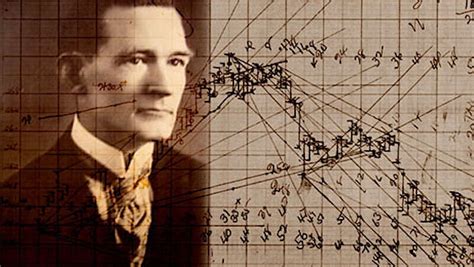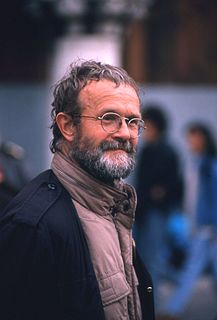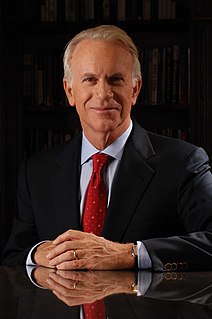Top 1139 Periods Quotes & Sayings - Page 19
Explore popular Periods quotes.
Last updated on December 23, 2024.
One measure for promoting both stability and fairness across financial market segments is a small sales tax on all financial transactions - what has come to be known as a Robin Hood Tax. This tax would raise the costs of short-term speculative trading and therefore discourage speculation. At the same time, the tax will not discourage "patient" investors who intend to hold their assets for longer time periods, since, unlike the speculators, they will be trading infrequently.
Economist Frederick Thayer has studied the history of our balanced-budget crusades and has come up with some depressing statistics. We have had six major depressions in our history (1819, 1837, 1857, 1873, 1893 and 1929); all six of them followed sustained periods of reducing the national debt. We have had almost chronic deficits since the 1930s, and there has been no depression since then - the longest crash-free period in our history.
Muhammad professed to derive from Heaven, and he has inserted in the Koran, not only a body of religious doctrines, but political maxims, civil and criminal laws, and theories of science. The gospel, on the contrary, only speaks of the general relations of men to God and to each other - beyond which it inculcates and imposes no point of faith. This alone, besides a thousand other reasons, would suffice to prove that the former of these religions will never long predominate in a cultivated and democratic age, whilst the latter is destined to retain its sway at these as at all other periods.
Another thing is, people lose perspective. It is a cultural trait in America to think in terms of very short time periods. My advice is: learn history. Take responsibility for history. Recognise that sometimes things take a long time to change. If you look at your history in this country, you find that for most rights, people had to struggle. People in this era forget that and quite often think they are entitled, and are weary of struggling over any period of time
During the periods when South Korea played a more active role, the inter-Korean relationship was more peaceful, and there was less tension between the United States and North Korea. The last U.S. administration pursued a policy of strategic patience and did not make any effort to improve its relationship with North Korea. Also, the previous Korean government did not make any such efforts. The result is the reality you see today - North Korea continuing to advance its nuclear and missile program.
Avataric periods are like the spring-tide of creation. They bring a new release of power, a new awakening of consciousness, a new experience of life - not merely for a few, but for all. Qualities of energy and awareness, which had been used and enjoyed by only a few advanced souls, are made available for all humanity. Life, as a whole is stepped up to a higher level of consciousness, is geared to a new rate of energy. The transition from sensation to reason was one such step; the transition from reason to intuition will be another.
Harvard and Yale concentrated with venture capitalists that got the best calls and brainpower. Very few firms made most of the money, and they made it in just a few periods. Everyone else returned between mediocre and lousy. When returns happened, envy rippled through institutional money management. The amount invested in venture capital went up 10 times post-1999. That later money was lost very quickly. It will happen again. I don't know anyone who successfully resists this stuff. It becomes a new orthodoxy.
How fleeting are the wishes and efforts of man! how short his time! and consequently how poor will his products be, compared with those accumulated by nature during whole geological periods. Can we wonder, then, that nature's productions should be far 'truer' in character than man's productions; that they should be infinitely better adapted to the most complex conditions of life, and should plainly bear the stamp of far higher workmanship?
I made a list of the happiest periods in my life, and I realized that none of them involved money. I realized that building stuff and being creative and inventive made me happy. Connecting with a friend and talking through the entire night until the sun rose made me happy. Trick-or-treating in middle school with a group of my closest friends made me happy. Eating a baked potato after a swim meet made me happy. Pickles made me happy.
On a long flight, after periods of crisis and many hours of fatigue, mind and body may become disunited until at times they seem completely different elements, as though the body were only a home with which the mind has been associated but by no means bound. Consciousness grows independent of the ordinary senses. You see without assistance from the eyes, over distances beyond the visual horizon. There are moments when existence appears independent even of the mind. The importance of physical desire and immediate surroundings is submerged in the apprehension of universal values.
I believe in the magic of books. I believe that during certain periods in our lives we are drawn to particular books--whether it's strolling down the aisles of a bookshop with no idea whatsoever of what it is that we want to read and suddenly finding the most perfect, most wonderfully suitable book staring us right in the face. Unblinking. Or a chance meeting with a stranger or friend who recommends a book we would never ordinarily reach for. Books have the ability to find their own way into our lives.
In actor's career, I had a fair amount of denial, which I think is possibly in the genes, where I just couldn't go to, "Maybe this won't work out." I just couldn't do it. My mind just refused to go there. I don't mean there weren't low periods. There were plenty. But I remember arriving in New York and I was maybe 32, and I didn't have an agent. I came from Chicago, where I had gone to school and worked and got my sea legs, so to speak, and I remember walking out of the subway, walking the streets, standing in front of the theater and saying, "I will work in this theater."
It is not difficult to understand why the great God of heaven has reserved these special spirits for the final work of the kingdom prior to his millennial reign.... This generation will face trials and troubles that will exceed those of their pioneer forebears. Our generation has had periods of some respite from the foe. The future generation will have little or none....This is a chosen generation.... I believe today's [Church youth] will lead the youth of the world through the most trying time in history.
Human beings of all societies in all periods of history believe that their ideas on the nature of the real world are the most secure, and that their ideas on religion, ethics and justice are the most enlightened. Like us, they think that final knowledge is at last within reach. Like us, they pity the people in earlier ages for not knowing the true facts. Unfailingly, human beings pity their ancestors for being so ignorant and forget that their descendants will pity them for the same reason.
In many ways, large profits are even more insidious than large losses in terms of emotional destabilization. I think it's important not to be emotionally attached to large profits. I've certainly made some of my worst trades after long periods of winning. When you're on a big winning streak, there's a temptation to think that you're doing something special, which will allow you to continue to propel yourself upward. You start to think that you can afford to make shoddy decisions. You can imagine what happens next. As a general rule, losses make you strong and profits make you weak.
Another writer asserts that the tyranny of man over woman has its roots, after all, in his nobler feelings; his love, his chivalry, and his desire to protect woman in the barbarous periods of pillage, lust, and war. But wherever the roots may be traced, the results at this hour are equally disastrous to woman. Her best interests and happiness do not seem to have been consulted in the arrangements made for her protection. She has been bought and sold, caressed and crucified at the will and pleasure of her master.
It is generally recognized that creativity requires leisure, an absence of rush, time for the mind and imagination to float and wander and roam, time for the individual to descend into the depths of his or her psyche, to be available to barely audible signals rustling for attention. Long periods of time may pass in which nothing seems to be happening. But we know that kind of space must be created if the mind is to leap out of its accustomed ruts, to part from the mechanical, the known, the familiar, the standard, and generate a leap into the new.
I arrived in San Francisco in January 1951. After the Second World War, the population was so uprooted. Soldiers came back home for brief periods and took off again. So the population was very fluid, and suddenly it was as if the continent tilted west. The whole population slid west. It took 10 years for America to coalesce into a new culture. And the new culture happened in San Francisco, not New York.
The Moon is a white strange world, great, white, soft-seeming globe in the night sky, and what she actually communicates to me across space I shall never fully know. But the Moon that pulls the tides, and the Moon that controls the menstrual periods of women, and the Moon that touches the lunatics, she is not the mere dead lump of the astronomist. . . . When we describe the Moon as dead, we are describing the deadness in ourselves. When we find space so hideously void, we are describing our own unbearable emptiness.
After careful consideration, we have decided that for our next fiscal year, we'll issue guidance on comparable store used unit sales and on earnings per share only for the full fiscal year. We will no longer issue quarterly guidance. This decision reflects our continuing focus on longer-term store, sales, and earnings growth and on return on invested capital, and our recognition that the performance in shorter-term periods can be more volatile than over the longer term. As we report our quarterly results, we plan to comment on how our performance is tracking against our annual guidance.
People are interested in certain ideas, in certain periods, and then that moves, and okay, now people are more interested in studying this, and there is no perfect balance, and how would you know what the perfect balance is? I mean, what does it mean to have too many Beethoven chairs and too few Stravinsky chairs? I mean, that's kind of a value judgment that isn't really based on humility. We don't know what the optimum number is, so let people figure this out on their own. People are more interested in Beethoven than Stravinsky? Great! Why would that bother me?
If you're going to buy something which compounds for 30 years at 15% per annum and you pay one 35% tax at the very end, the way that works out is that after taxes, you keep 13.3% per annum. In contrast, if you bought the same investment, but had to pay taxes every year of 35% out of the 15% that you earned, then your return would be 15% minus 35% of 15%-or only 9.75% per year compounded. So the difference there is over 3.5%. And what 3.5% does to the numbers over long holding periods like 30 years is truly eye-opening.
Ask yourself whether our language is complete--whether it was so before the symbolism of chemistry and the notation of the infinitesimal calculus were incorporated in it; for these are, so to speak, suburbs of our language. (And how many houses or streets does it take before a town begins to be a town?) Our language can be seen as an ancient city: a maze of little streets and squares, of old and new houses, and of houses with additions from various periods; and this surrounded by a multitude of new boroughs with straight regular streets and uniform houses.
We need the stars... We need purpose! We need the image the Destiny to take root among the stars gives us of ourselves as a purposeful, growing species. We need to become the adult species that the Destiny can help us become! If we're to be anything other than smooth dinosaurs who evolve, specialize and die, we need the stars.... When we have no difficult, long-term purpose to strive toward, we fight each other. We destroy ourselves. We have these chaotic, apocalyptic periods of murderous craziness.
Deep attention, the cognitive style traditionally associated with the humanities, is characterized by concentrating on a single object for long periods (say, a novel by Dickens), ignoring outside stimuli while so engaged, preferring a single information stream, and having a high tolerance for long focus times. Hyper attention is characterized by switching focus rapidly among different tasks, preferring multiple information streams, seeking a high level of stimulation, and having a low tolerance for boredom.
Music is neither old nor modern: it is either good or bad music, and the date at which it was written has no significance whatever. Dates and periods are of interest only to the student of musical history. . . . All old music was modern once, and much more of the music of yesterday already sounds more old-fashioned than works which were written three centuries ago. All good music, whatever its date, is ageless - as alive and significant today as it was when it was written
A gulf profound as that Serbonian bog Betwixt Damiata and Mount Casius old, Where armies whole have sunk: the parching air Burns frore, and cold performs th' effect of fire. Thither by harpy-footed Furies hal'd, At certain revolutions all the damn'd Are brought, and feel by turns the bitter change Of fierce extremes,-extremes by change more fierce; From beds of raging fire to starve in ice Their soft ethereal warmth, and there to pine Immovable, infix'd, and frozen round, Periods of time; thence hurried back to fire.
I think there's more stressful periods than others when you're launching new things or going into a new business, or there are many things that can stress you out. Having to let people go, that's stressful. Never fun. But for the most part, I try to manage a schedule that's achievable and try not to make a schedule that's not. And a lot of times, sometimes it becomes a little unmanageable, but in spurts. So I think being able to make an achievable schedule, one that I know I can accomplish.
Although it is tempting to think of these natural landscapes as reflecting a stability in climactic and geologic forces, long periods of climactic and geophysical stability actually result in a rundown of the energy available to ecosystems and people. Geologically young regions with recent mountain building and volcanism tend to be much more biologically productive and have supported large populations of people despite their vulnerability to natural disasters. Geologically old regions (like most of Australia) tend to have low biological productivity and supported fewer people.
Fashion for me is the perfect combination of all the things I love. There's an element of history to it. I love understanding why people wear what they wear, why during certain periods in history women looked the way they looked. There was always a strong reason behind it, whether it was because of what was available to them or because of what was happening in the world politically or sociologically. Fashion is like an amazing blend of commerce, travel, and creativity - of studying what people were about during a particular time.
I endeavor to drink deep of philosophy, and to be wise when I cannot be merry, easy when I cannot be glad, content with what cannot be mended, and patient where there is no redress. The mighty can do no more, and the wise seldom do as much. ... I am resolved to make the best of all circumstances around me, that this short life may not be half lost in pains ... Between the periods of birth and burial, I would fain insert a little happiness, a little pleasure, a little peace: to-day is ours, yesterday is past, and to-morrow may never come.
In my opinion, the greatest misconception about the market is the idea that if you buy and hold stocks for long periods of time, you'll always make money. Let me give you some specific examples. Anyone who bought the stock market at any time between the 1896 low and the 1932 low would have lost money. In other words, there's a 36 year period in which a buy-and-hold strategy would have lost money. As a more modern example, anyone who bought the market at any time between the 1962 low and the 1974 low would have lost money.
A lot of the people in history who I really admire lived before the hyperinformation age we're living in. Even if they were governing or solving problems in consequential periods, like the Civil War or the world wars or the Great Depression or the Cold War, they had a period of time and space to actually think, to be private and you read their biographies, and they had time to think about what was happening and how to respond. I don't think human nature has changed in the last 50-150 years, but the stresses, the demands on those of us in public life have just exploded.
I don’t worry anymore about writing. There are times that I go through dry periods. I never go through a block. I’m always writing, but there are times where I’m just not on my game, and I’ll use that time to read some new poets, go see some art, walk down to the river and just stare at it, or have a conversation with my sister, or whatever—do whatever it is that I do in my life, hoping that I’ll get filled up enough. And something will happen, some juggling will happen and boom.
In any age courage is the simple virtue needed for a human being to traverse the rocky road from infancy to maturity of personality. But in an age of anxiety, an age of herd morality and personal isolation, courage is a sine qua non. In periods when the mores of the society were more consistent guides, the individual was more firmly cushioned in his crises of development; but in times of transition like ours, the individual is thrown on his own at an earlier age and for a longer period.
Star Wars may be kind of a cartoon, but the original trilogy depicts a political paralysis which breeds an interest in a strong leader who will make a significant break with the past. And Hillary Clinton is a person - whether you like it or not - of extraordinary experience. I don't know if we ever had a presidential candidate with that level of political experience. There's no learning curve for her. And that, in some periods, would be a huge plus. In the end, I think it will be a significant plus for her now.
The two biggest hits (by Machito)... were about that enduring Cuban song topic-food: 'Sopa de pichn' [pigeon soup] and 'Paella'. If you think that all songs about food are double entendres for sex... Well, maybe all songs about food can be double entendres, but in many periods of Cuban history, for many people, food has been harder to get, and the subject of more fantasies, than sex.
I buy stocks when they are battered. I am strict with my discipline. I always buy stocks with low price-earnings ratios, low price-to-book value ratios and higher-than-average yield. Academic studies have shown that a strategy of buying out-of-favor stocks with low P/E, price-to-book and price-to-cash flow ratios outperforms the market pretty consistently over long periods of time.
The creation story unfurling within the scientific enterprise provides the fundamental context, the fundamental arena of meaning, for all the peoples of the Earth. For the first time in human history, we can agree on the basic story of the galaxies, the stars, the planets, minerals, life forms, and human cultures. This story does not diminish the spiritual traditions of the classical or tribal periods of human history. Rather, the story provides the proper setting for the teachings of all traditions, showing the true magnitude of their central truths.
The main reason I decided to study Latin American literature was because I'd gotten somewhat bored by the American fiction I was reading. I am not drawn to a specific style or aesthetic. When I think about literature, I think about it in the three languages I read easily - English, Spanish, and Portuguese. The authors I prefer are all very different and are not limited to certain genres or even certain time periods. Reading across three languages is a way for me to diversify my intake as a reader, not to tunnel into certain categories or demographics.
Italian is a very different poetic situation and there are these hard and fast rhythmic periods, settenari, ottonari of seven and eight syllables. These are fundamental to the way people speak and write and breaking them is more radical in Italian than when we break a line. I'm sure there are Italian poets who want to write poetry as prose and break these Petrarchan rules. And breaking them is fun and a valid thing to do. But I'm more interested in trying to write poetry that absorbs tradition and uses it in new ways, and doesn't throw it out.
The lawyers have escaped most criticism [and undeservedly so]. The tax shelters [were approved by lawyers, who got paid huge commissions to do so] and every miscreant had a high-falutin' lawyer at his side. Why don't more law firms vote with their feet and not take clients who have signs on them that say, "I'm a skunk and will be hard to handle?" I've noticed that firms that avoid trouble over long periods of time have an institutional process that tunes bad clients out. Boy, if I were running a law firm, I'd want a system like that because a lot of firms have a lot of bad clients.
When I look over my past, I see that the stages in my life are like the phases of the moon. I've had periods where I was the waxing gibbous: fat with wealth and success. There have been other seasons when my happiness was like the waning crescent and I watched my joy fade away slowly, merging with the atmosphere around me as if it never existed. Then I felt as if I was left with nothing more than an illusion, but happiness returns in time and glows once more in corpulent fullness. It's time that makes the difference.
Time is the most important factor in determining market movements and by studying past price records you will be able to prove to yourself history does repeat and by knowing the past you can tell the future. There is a definite relation between price and time. By studying time cycles and time periods you will learn why market tops and bottoms are found at certain times, and why resistance levels are so strong at certain times, and prices hold around them. The most money is made when fast moves and extreme fluctuations occur at the end of major cycles.
It never seemed important to me that my photos be published. It's important that I take them. There were periods where I didn't have money, and I would imagine that someone would come to me and say: 'Here is money, you can go do your photography, but you must not show it.' I would have accepted right away. On the other hand, if someone had come to me saying: 'Here is money to do your photography, but after your death it must be destroyed,' I would have refused.
I know there were periods of times where I didn't feel understood, and there were very few people around me that I felt like they really got me. There was one person who was sort of the one in my life that really got me.In general, I felt a little bit on the outside and not totally included. There was a period of time when we were moving around a lot. So I couldn't really hold on to a certain set of friends. And so that was a little bit difficult.
Smoking pot makes people talk for long periods of time, for instance, so people who advocate pot won't shut the hell up about it. On the other hand, no one really needs to defend drinking. That's something that frustrates me as a comic: I have to play clubs where selling booze runs the business, so crowds get drunk and yell out a bunch of stupid stuff at me. Pot doesn't cause people to do that. I did a show in Amsterdam a few months ago, and people weren't yelling stuff out at all. They also weren't laughing very much, but I think they were still having a good time.
We stand for a living wage. Wages are subnormal if they fail to provide a living for those who devote their time and energy to industrial occupations. The monetary equivalent of a living wage varies according to local conditions, but must include enough to secure the elements of a normal standard of living-a standard high enough to make morality possible, to provide for education and recreation, to care for immature members of the family, to maintain the family during periods of sickness, and to permit of reasonable saving for old age.
Many a young person tells me he wants to be a writer. I always encourage such people, but I also explain that there's a big difference between being a writer and writing. In most cases these individuals are dreaming of wealth and fame, not the long hours alone at the typewriter. You've got to want to write, I say to them, not want to be a writer. The reality is that writing is a lonely, private and poor-paying affair. For every writer kissed by fortune, there are thousands more whose longing is never requited. Even those who succeed often know long periods of neglect and poverty. I did.
My being consists of matter and form, that is, of soul and body; annihilation will reach neither of them, for they were never produced out of nothing. The consequence is, that every part of me will serve to make something in the world; and this again will change into another part through an infinite succession of change. This constant method of alteration gave me my being, and my father before me, and so on to eternity backward: for I think I may speak thus, even though the world be confined within certain determinate periods.
It's basically the same in all periods of societies. If you belong to the majority, you can avoid thinking about lots of troubling things.' 'And those troubling things are all you /can/ think about when you're one of the few.' 'That's about the size of it,' she said mournfully. 'But maybe, if you're in a situation like that, you learn to think for yourself.' 'Yes, but maybe what you end up thinking for yourself /about/ is all those troubling things.
Prison life taught him how little one can get along with, and what extraordinary spiritual freedom and peace such simplification can bring. I remember again, ironically, that today more of us in the world have the luxury of choice between simplicity and complication of life. And for the most part, we, who could choose simplicity, choose complication. War, prison, survival periods, enforce a form of simplicity on us. The monk and the nun choose it of their own free will. But if one accidentally finds it, as I have for a few days, one finds also the serenity it brings.
The ending of my experience with cocaine came in a periodic way. I would get high less frequently, I would use smaller amounts, and I would do coke for less periods of time. And that process just kept increasing and increasing until I wasn't using it at all. I didn't go on a program anywhere. I didn't join an organization or detox anywhere. I just slowly tapered off until it was gone. That was also true of my heavy pot use. I just tapered off until there was almost no use at all. And the same thing was true of drinking tons of beer.
It is for Muslim scholars to study the whole history of Islamic science completely and not only the chapters and periods which influenced Western science. It is also for Muslim scholars to present the tradition of Islamic science from the point of view of Islam itself and not from the point of view of the scientism, rationalism and positivism which have dominated the history of science in the West since the establishment of the discipline in the early part of the 20th century in Europe and America.
In the stock market (as in much of life), the beginning of wisdom is admitting your ignorance. One of the many things you cannot know about stocks is exactly when they will up or go down. Over the long term, stocks generally rise at a nice pace. History shows they double in value every seven years or so. But in the short term, stocks are just plain wild. Over periods of days, weeks and months, no one has any idea what they will do. Still, nearly all investors think they are smart enough to divine such short-term movements. This hubris frequently gets them into trouble.
Such young men are often awkward, ungainly, and not yet formed in their gait; they straggle with their limbs, and are shy; words do not come to them with ease, when words are required, among any but their accustomed associates. Social meetings are periods of penance to them, and any appearance in public will unnerve them. They go much about alone, and blush when women speak to them. In truth, they are not as yet men, whatever the number may be of their years; and, as they are no longer boys, the world has found for them the ungraceful name of hobbledehoy.
It's a shame for women's history to be all about men--first boys, then other boys, then men men men. It reminds me of the way our school history textbooks were all about wars and elections, one war after another, with the dull periods of peace skimmed over whenever they occurred. (Our teachers deplored this and added extra units about social history and protest movements, but that was still the message of the books.)
There were periods in Islamic history when things like apostasy and blasphemy were made punishable. So you know it kind of depends - there's no argument, quite apart from the question of the divine or otherwise nature of the Qur'an, that huge swathes of Islamic law are man-made. Clerics here - in maintaining their power, will often try to elide that and say "Well no, actually this isn't man-made at all. Stoning is part of the divine revelation." It isn't in the Qur'an but the way this has been done over the years is to take the Hadith.
Although the constellations in which I have found myself - and naturally also the periods of life and their different influences - have led to changes and development in the accents of my thought, my basic impulse, precisely during the Council, was always to free up the authentic kernel of the faith from encrustations and to give this kernel strength and dynamism. This impulse is the constant of my life ... what's important to me is that I have never deviated from this constant, which from my childhood has molded my life, and that I have remained true to it as the basic direction of my life.












